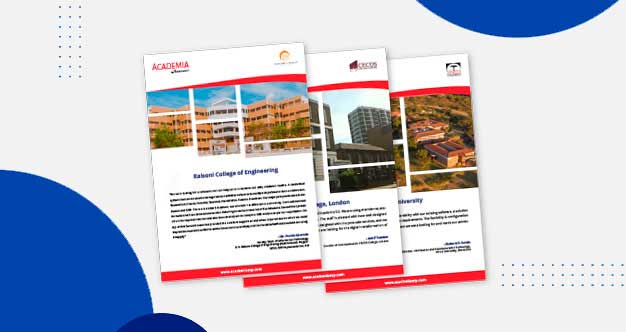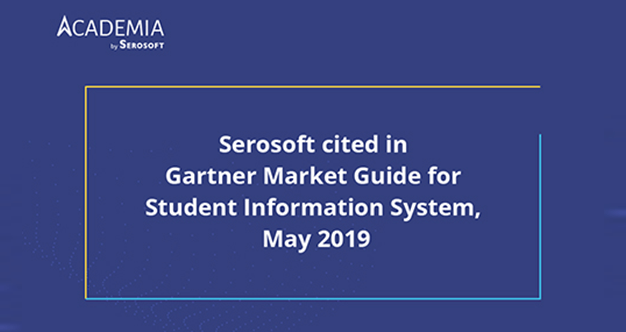National Curriculum Framework (NCF 2005) | Transforming Future
Navigate through the intricacies of the National Curriculum Framework 2005 (NCF) and introduce more quality in education with technology-driven solutions. Learn how ERP can help the government, semi-government and private schools in India come in line with NCF 2005, and ensure the overall development of a student in the K-12 segment.
What is National Curriculum Framework (NCF 2005)
National Curriculum Framework is an initiative that tends to change the approach of schools to education in the K-12 segment by replacing the traditional text-book centric strategy to focus on learning outcomes that drive the curriculum for courses.
The policy defines clear outcomes expected to be achieved by a student at the end of their course. It introduces Outcome-based Education or Standard-based Education reform design in the schools of India.
Characteristics of National Curriculum Framework (NCF 2005)
- Promotes 360-degree development of a student, including — academic, emotional, and physical.
- Promotes intellectual development of a student by providing varied opportunities.
- Promotes a conducive learning environment to ensure quality education and encourages participation across various activities.
- Promotes creative thinking and skill development by facilitating different activities and provides liberty of expression to individuals within the class.
- Promotes multicultural attributes to ensure no student is discriminated against based on caste, religion, or social status.
Objectives of National Curriculum Framework
The National Curriculum Framework of 2005 focuses on quality, accessibility, and equity.
- Introduction of new concepts in the curriculum without increasing the syllabus.
- Making quality education accessible to students without any discrimination.
- Curricular practices should be in alignment with secularism, social justice, and quality.
- Strengthening the national education ecosystem in society.
Guiding Principle of National Curriculum Framework
NCF 2005 brings some major reforms into the curriculum. It is more centralized to the need of the time and does not encourage just textbook knowledge. It brings more flexibility in curriculum development and encourages institutes to open new paradigms to the students. It promotes skill development and skill alignment in accordance with the global job market.
- Connecting learning with real-life examples outside education.
- Ensuring different learning approaches rather than rote methods.
- Enhancement of curriculum to offer knowledge and experience beyond textbooks.
- Improvement of the examination method
- Enhancing overriding identity informed by concerns within the democratic polity of the country.
Challenges in implementing National Curriculum Framework 2005 in Institutes
The National Curriculum Framework works on the principle that it sees a child as a natural learner who learns from his own experience. However, the ground reality hits it hard. Many schools in India still operate on the traditional methods of teaching putting the child under a lot of pressure to attain good marks in examinations rather than developing intellectual and creative skillsets. This results in a classroom scenario where the child becomes a passive learner and only works on memorization of facts and information to produce good results in examination.
Furthermore, institutes face a major challenge in embodying NCF 2005 due to the following reasons:
- Lack of Supervisory Staff:
Introducing Outcome-based Education is a real challenge in the Indian education system because of the severe crunch in the supervisory staff. Objective-based learning takes more than just the teaching staff. A lot of people are involved in the process of defining the program objectives and course outcomes and analyzing the performance of the students to mark if the objectives are achieved. This multi-layered system thus requires supervisory staff. (Learn more about OBE in this informative blog)
- Increased Workload on Teachers
Lack of technology and extreme dependence on traditional methods of teaching, and administration has led to a never-ending workload on teachers. This is a possible reason for reduced productivity and performance in teachers and time and time again it has popped as a critical issue in front of government authorities in India.
Furthermore, National Curriculum Framework emphasizes providing a diverse learning environment to a child to evoke the natural learner in itself. But lack of infrastructure does not provide much for the child and hampers the learning process as the environment is not conducive to learning.
- Less Emphasis on Co-scholastic Activities
The emphasis on emotional and creative development in NCF cannot be fully realized without co-scholastic activities. In a study by The News, 70% of principals approved of co-scholastic activities in the school and confirmed its effects such as improved self-confidence, self-control, sportsmanship, solidarity, teamwork, competitiveness, and health.
The same study also indicates that half of the schools lacked the infrastructure to provide co-scholastic activities in a school. Averagely, 60% of the total time in a school is spent on academic subjects.
- Over Emphasis on Numbers
In school, there is a dominance of the number system, schools do not have any concern with learning rather their main concern is to produce scores which further helps institutes to get more admissions. Parents tend to pressure children to get more marks in the examination rather than in learning and development. This is in contrast with the objectives of NCF.
How Academia ERP helps in the successful implementation of NCF 2005
Academia ERP is a 35+ module School Management System. It helps you in streamlining operations and improves staff productivity by several folds. The unique attributes of the product include automation of institute tasks, improved multi-level reporting, and high configurability. Here are a few ways in which it can help you implement NCF successfully in your institute.
- OBE Module
Academia ERP comes with an in-built OBE module that helps you in managing your curriculum for Outcome-based Education better. Using the software you can define program objectives, course outcomes, perform assessments, do CO-PO mapping, and more. It is a feature-rich module that supports all operations pertaining to outcome-based education in an institute.
- Reduced dependency on human resources
The product can handle thousands of operations at the same time and brings automation to processes. It means, your staff does not have to worry about the time-intensive manual operations to administer your institute. Rather they can focus on providing quality education and participate in a variety of activities to make OBE successful in the institute.
- Program & Course Management
Program and course management is another great module in the product where it allows administrators to track syllabus, manage student attendance, track student performance, collect assignments, allocate resources to students/classes/departments, and do a variety of other tasks. It is a highly efficient tool that helps teachers to lesson planning, digitally manage day-to-day academic activities, and more.
- Timetable Management
Time management becomes necessary when it comes to the successful implementation of OBE. Since NCF emphasizes on 360-degree development of a child, it means allocating resources to provide a varied and conditioned learning environment to students on regular basis to ensure intellectual and creative development of a student.
Timetable management thus provides administrative a digital tool to manage teachers, resources, and co-scholastic activities for each class and department error-free. This helps in periodizing the sessions and efficiently managing them in case of the unavailability of resources and teachers to provide substitutes and ensure an unhindered learning experience.
Wrapping Up
NCF is a revolution in the education sector of India. However, for it to successfully transform the sector there need to be some fundamental changes in the way things function and process. This includes better management of courses and curriculum, improved infrastructure, periodic student performance tracking, better student handholding, provision of resources for making learning more conducive and varied, and more.
If you are interested in learning more about NCF and how Academia ERP can help you in the successful implementation of it in your school speak with our technical expert.
Related posts:
 Higher Ed Plans
Higher Ed Plans K12 Plans
K12 Plans










